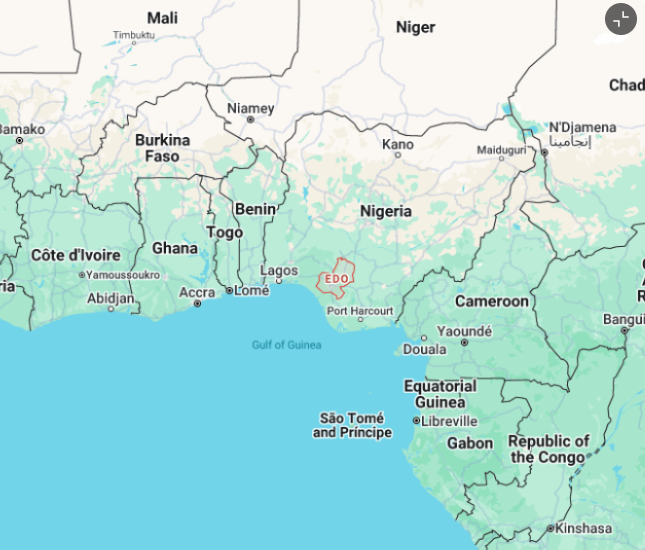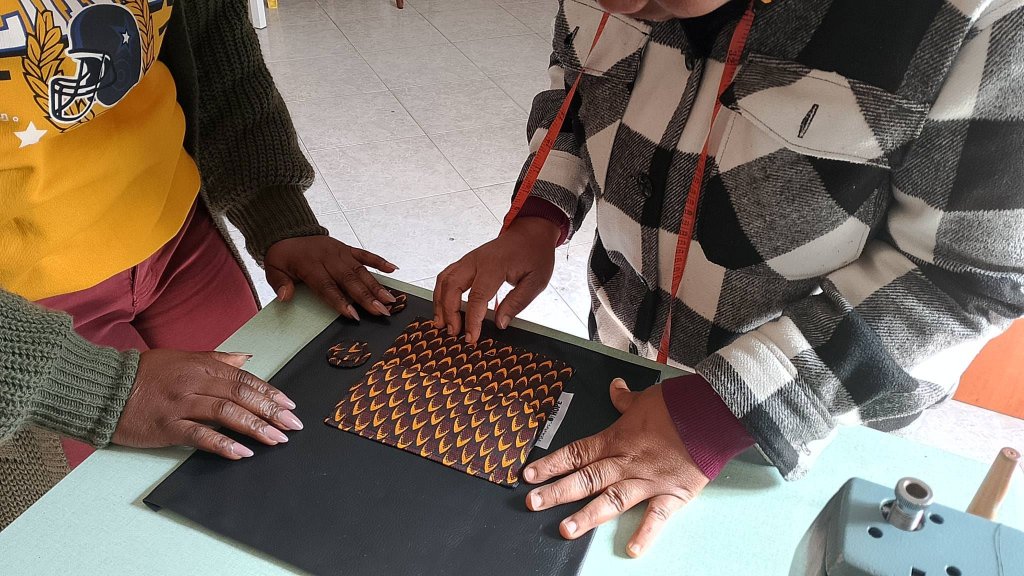Blessing and Sarah set out to build new lives in Europe. Their smugglers demanded tens of thousands of euros from them once they arrived on the continent, with prostitution seemingly the only way of paying off their debt.
Blessing is a "survivor." The graduate in computer science left her native Nigeria for Spain over ten years ago, after being promised a job in a specialty store. Blessing quickly realized that "it was all a trap" upon her arrival in Europe.
"The job didn't exist and neither did my work visa," she said. Her abductors then forced her to leave Spain for Naples, Italy. "They told me there that I had to repay them 65,000 euros, supposedly the cost of the journey." The smugglers then left the young Nigerian woman with no other choice to pay her debt except to become a prostitute.
Thousands of migrant women like Blessing are caught up in prostitution networks every year once they arrive in Europe. Between 15,000 and 20,000 people are at risk of human trafficking upon arrival in Italy, according to the National Anti-Trafficking Helpline, an Italian hotline for victims of human trafficking. Sexual exploitation remains the predominant form of exploitation. Most victims are from Nigeria (68.4 percent), Ivory Coast (3.5 percent) and Pakistan (3 percent).
These numbers should be taken with caution, the Council of Europe wrote in a report. "Insufficiencies in the procedures for identifying victims" and "low reporting rate of victims fearing punishment or expulsion" means they are probably underestimated.
Read Also
'Exploitation and enslavement': Two Nigerian migrants take rights case to UN Committee
'Psychological control'
Future victims, which are sometimes minors, are mostly identified in southern Nigeria, in Edo State. "Trafficking begins in the country of origin. This is where the abductor’s control over the victim is established, through the ritual juju ceremony," said Kathleen Taïeb, a criminal lawyer who represents many victims in France.
The future migrants swear during the ceremony never to speak against the people who brought them to Europe. Their oath is sealed with a small paper package containing pubic hair, a sanitary napkin, or the hair of the future migrant, which is then offered to the master of ceremonies. The community can monitor her through this ritual object, wherever she is, according to traditional beliefs. "The psychological control is established," said Taïeb. This makes rescuing them very difficult, because the women are terrified of the backlash if they denounce their smugglers.

It is difficult for these migrants to ask for help, even when they are on their journeys. "We regularly have suspicions about women who are alone, or under the protection of a man who isn't their husband. They have trouble confiding in us, and we don't want to put them in danger," said Margot Bernard, a former coordinator for Doctors Without Borders aboard the rescue ship Geo Barents. The teams on board try to put them in touch with associations. "Yet it’s complicated. You need to earn trust and we don't necessarily have time on the boat."
The migrants are often pressured to quickly repay their debt once they arrive in Italy. The sums are colossal: "at least 35,000 euros", said Taïeb. The spiritual and emotional dependence is aggravated by a financial one which takes hold as well. Loveth prostituted herself for five years in the Château Rouge district of Paris to repay 40,000 euros to her pimps. "I became pregnant several times because of my work, I had to find ways to get abortions. I suffered so much," she told InfoMigrants a few years ago.
Read Also
Fata's story: 'I got out of prostitution to help my sisters get out of this cycle'
'More West African migrants'
Several Nigerian pimping cases have recently been brought before the courts. A criminal trial court in Paris sentenced Miriam Wiseborn, a madam and former prostitute herself, to 13 years in prison and a permanent ban from the territory in December 2024. Seven men accused of sexually exploiting undocumented Nigerian women were tried later the same year in June by the Paris Departmental Criminal Court for aggravated pimping and human trafficking.
These trials helped shed light on the reality of Nigerian women upon their arrival in Europe. In recent months, "we've seen fewer Nigerian nationals in the networks, but more West African migrants”, said Taïeb.
Sarah, originally from Ivory Coast (Côte d'Ivoire), was deceived by people in whom she had placed all her hopes. The young woman was quickly arrested and thrown into prison after arriving in Libya in 2018. Raped by a guard, she gave birth to a child in her cell. Upon her release, the young mother was "completely desperate". She then met a woman who offered to take her in.

The woman, who was her only source of support in Libya, offered to pay for her Mediterranean crossing after a few months. Sarah accepted and boarded a boat with her son. Upon arriving in Italy, she was hosted in northern Italy by acquaintances of her "smuggler". Her situation dramatically worsened a few days later. "These people told me I had to pay now," she said. In other words, she had to sell her body to repay her debt.
Sarah fled Italy for France in the winter of 2023 and applied for asylum. "The problem is that I've been 'Dublinized', so I must go back to Italy. But I can't, I'm too scared," she confides. "If I go back there, they'll find me."
Read Also
Migrant women in France face 'double violence' when reporting abuse
'They give me strength'
Blessing also experienced a visceral fear of being "punished”. Yet she found the strength to speak to the police, who took her to a shelter run by nuns. "That's when I had a moment of enlightenment," she said. "Talking is already a huge deal, but what next? I told myself I had to do something." Blessing founded Weavers of Hope near Naples in 2018, "a center where survivors with or without children can take refuge."
Activities and training are also offered to those who join the community as they rebuild their lives. "Today I can say that I'm doing well, thanks to my work and the women I meet; they give me strength," said Blessing. "I want to tell all those under the influence that there are solutions, that life is worth living. Your rescue is just the beginning."
*** If you are a victim of trafficking, here are the associations that can help you:
In Italy: Weavers of Hope, San Nicola la Strada, +393792331871
In France: La Mist, Paris, contact@mist-association.org
Bus des femmes, Paris, +33143149898
